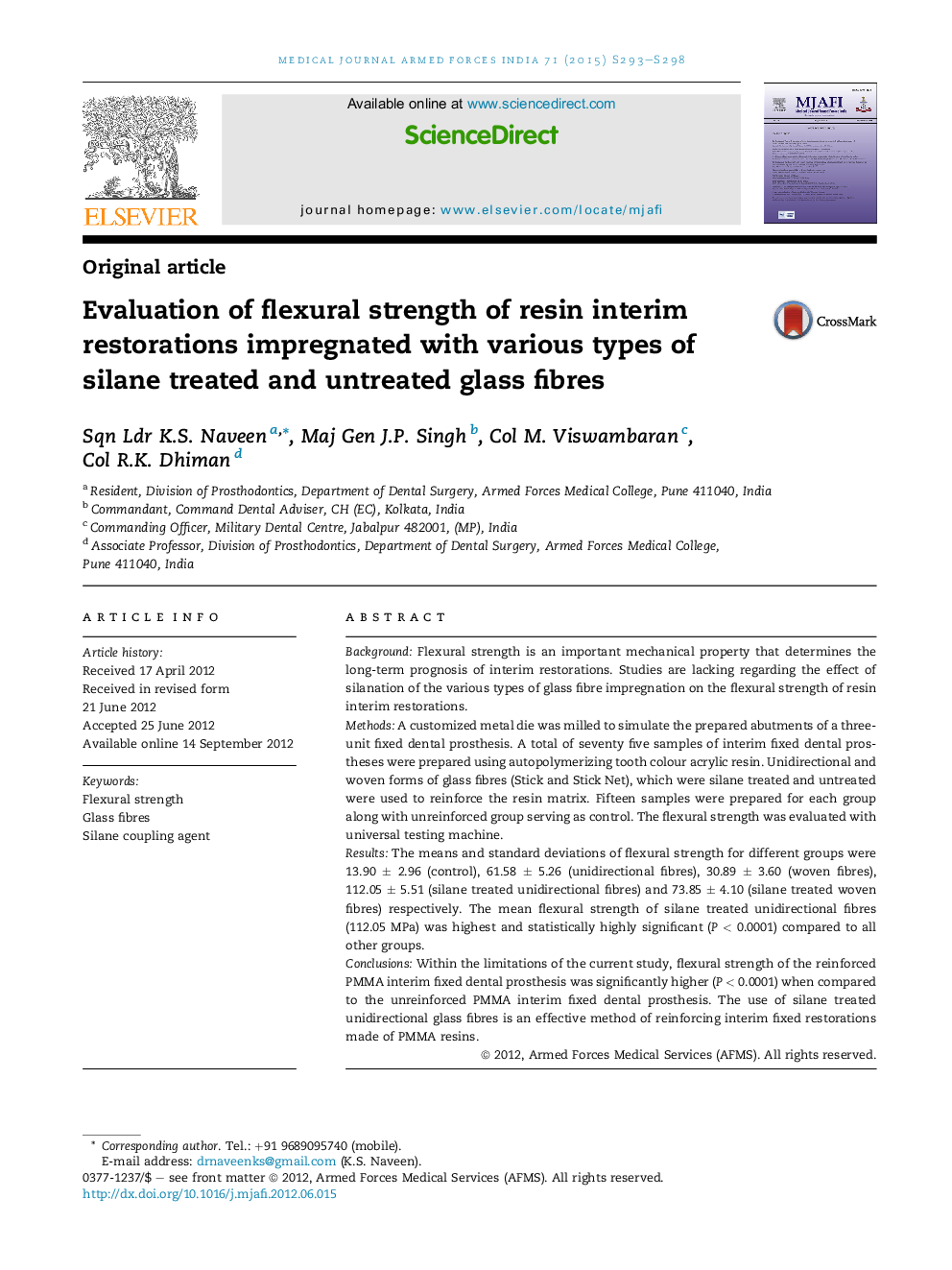| Article ID | Journal | Published Year | Pages | File Type |
|---|---|---|---|---|
| 3161066 | Medical Journal Armed Forces India | 2015 | 6 Pages |
BackgroundFlexural strength is an important mechanical property that determines the long-term prognosis of interim restorations. Studies are lacking regarding the effect of silanation of the various types of glass fibre impregnation on the flexural strength of resin interim restorations.MethodsA customized metal die was milled to simulate the prepared abutments of a three-unit fixed dental prosthesis. A total of seventy five samples of interim fixed dental prostheses were prepared using autopolymerizing tooth colour acrylic resin. Unidirectional and woven forms of glass fibres (Stick and Stick Net), which were silane treated and untreated were used to reinforce the resin matrix. Fifteen samples were prepared for each group along with unreinforced group serving as control. The flexural strength was evaluated with universal testing machine.ResultsThe means and standard deviations of flexural strength for different groups were 13.90 ± 2.96 (control), 61.58 ± 5.26 (unidirectional fibres), 30.89 ± 3.60 (woven fibres), 112.05 ± 5.51 (silane treated unidirectional fibres) and 73.85 ± 4.10 (silane treated woven fibres) respectively. The mean flexural strength of silane treated unidirectional fibres (112.05 MPa) was highest and statistically highly significant (P < 0.0001) compared to all other groups.ConclusionsWithin the limitations of the current study, flexural strength of the reinforced PMMA interim fixed dental prosthesis was significantly higher (P < 0.0001) when compared to the unreinforced PMMA interim fixed dental prosthesis. The use of silane treated unidirectional glass fibres is an effective method of reinforcing interim fixed restorations made of PMMA resins.
